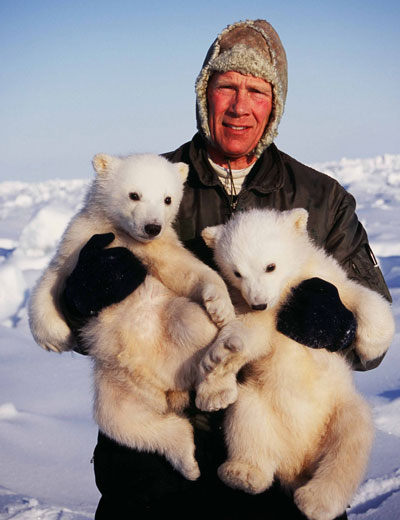 Of Bears & Humans (start time: 1:34) If you live on the Front Range or in the mountains, you’ve probably seen a black bear while hiking or in your neighborhood. Black bears are thriving, but most of the other eight remaining bear species are struggling to survive. How On Earth host Susan Moran interviews journalist Gloria Dickie about her just-published debut book Eight Bears: Mythic Past and Imperiled Future (W.W. Norton). It explores conservation efforts to preserve the remaining species. Spoiler alert: the eight bears who inhabit Dickie’s book (and parts of the planet) are the black, brown, panda, moon, sun, sloth, and spectacled bears. Dickie’s work has appeared in many publications, including The New York Times, High Country News and National Geographic. She is currently based in London, as a global climate and environment correspondent for Reuters.
Of Bears & Humans (start time: 1:34) If you live on the Front Range or in the mountains, you’ve probably seen a black bear while hiking or in your neighborhood. Black bears are thriving, but most of the other eight remaining bear species are struggling to survive. How On Earth host Susan Moran interviews journalist Gloria Dickie about her just-published debut book Eight Bears: Mythic Past and Imperiled Future (W.W. Norton). It explores conservation efforts to preserve the remaining species. Spoiler alert: the eight bears who inhabit Dickie’s book (and parts of the planet) are the black, brown, panda, moon, sun, sloth, and spectacled bears. Dickie’s work has appeared in many publications, including The New York Times, High Country News and National Geographic. She is currently based in London, as a global climate and environment correspondent for Reuters.
Hosts: Susan Moran, Joel Parker
Producer: Susan Moran
Engineer: Joel Parker
Executive Producer: Shelley Schlender
Listen to the show here:
Podcast: Play in new window | Download (Duration: 26:39 — 24.4MB)
Subscribe: RSS






 Polar Bears (starts at 6:30): It is well known that, right now, life for polar bears looks bleak. Warming temperatures mean the season for sea ice cover in the Arctic has become shorter and shorter. As sea ice provides a home and hunting ground for polar bears, both the number of bears and their health has suffered. There is even talk of them becoming extinct. But is this something that we should worry about in Colorado and other non-arctic regions around the world? We don’t have bears, right now we don’t have ice, and we have plenty of other concerns. Dr. Steven Amstrup, the Chief scientist for Polar Bears International, joins us on How on Earth to explain why we should care. He thinks that polar bears are the sentinels of global health and that they provide advance warning of some of the challenges coming to all species. That includes us humans. But he thinks if we act soon, we can save both the bears and ourselves.
Polar Bears (starts at 6:30): It is well known that, right now, life for polar bears looks bleak. Warming temperatures mean the season for sea ice cover in the Arctic has become shorter and shorter. As sea ice provides a home and hunting ground for polar bears, both the number of bears and their health has suffered. There is even talk of them becoming extinct. But is this something that we should worry about in Colorado and other non-arctic regions around the world? We don’t have bears, right now we don’t have ice, and we have plenty of other concerns. Dr. Steven Amstrup, the Chief scientist for Polar Bears International, joins us on How on Earth to explain why we should care. He thinks that polar bears are the sentinels of global health and that they provide advance warning of some of the challenges coming to all species. That includes us humans. But he thinks if we act soon, we can save both the bears and ourselves.